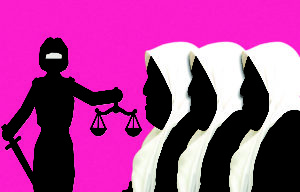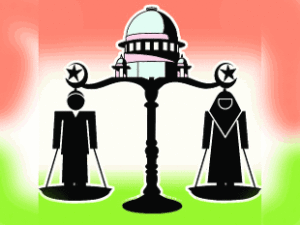
The seven wonder Muslim woman of India who had filed the petition has challenged the practice of triple talaq long back in India.
The Supreme Court asked political parties to keep their differences aside and help the Centre to bring out a new law on the triple talaq on Tuesday 22 August 2017 because he ruled that the practice of triple talaq is void and illegal.
The court said that the practice would not be operational for six months and asked the government to come out with a legislation on triple talaq taking into account the concerns of Muslim bodies and the Sharia law.
The five-judge bench set aside triple talaq by a 3-2 majority. Justice Rohinton F. Nariman and Justice Uday U. Lalit set it aside, terming it unconstitutional, while Justice Kurian Joseph set it aside on the grounds that it is against the teachings of the Quran. Chief Justice J.S. Khehar and Justice Abdul Nazeer backed the triple talaq. “Triple talaq was part of Muslim personal law and hence enjoys the status of fundamental rights,” Justice Khehar said.
While delivering his verdict, Justice Joseph said that triple talaq was against the tenets of the Quran and violated Sharia law. “Extreme difficult to agree with CJI that triple talaq is integral to practice of Islam,” he said.
Court also referred to the abolition of triple talaq in Islamic countries, asked why independent India could not get rid of this.
The bench had heard seven pleas, including five separate petitions filed by Muslim women challenging the prevalence of triple talaq. The petitioners had claimed that triple talaq was unconstitutional.
Several lawyers, including Ram Jethmalani, had attacked the practice on various constitutional grounds, including the right to equality, and termed it “abhorrent”.
It was argued that triple talaq was a discrimination on the ground of sex and this practice was abhorrent to the tenets of the Quran and no amount of advocacy can save this “sinful” practice that is contrary to constitutional tenets. 
May 11: SC says it would examine whether the practice of triple talaq among Muslims is fundamental to their religion.
May 12: SC says the practice of triple talaq was the “worst” and “not desirable” form of dissolution of marriages among Muslims.
May 15: Centre tells SC that it will bring new law to regulate marriage and divorce among the Muslim community if triple talaq struck down. SC says it would examine whether triple talaq was an essential part of religion under Article 25 of Constitution.
May 16: AIMPLB tells SC that matters of faith cannot be tested on grounds of constitutional morality, says triple talaq a matter of faith for last 1,400 years. Equates the issue of triple talaq with the belief that Lord Rama was born in Ayodhya.
May 17: SC asks AIMPLB whether a woman can be given an option of saying ‘no’ to triple talaq at the time of execution of ‘nikahnama’. Centre tells SC triple talaq is neither integral to Islam nor a “majority versus minority” issue but rather an “intra-community tussle” between Muslim men and deprived women.
May 18: SC reserves verdict on triple talaq.
May 22: AIMPLB files affidavit in SC saying it would issue an advisory to ‘Qazis’ to tell bridegrooms that they will not resort to triple talaq to annul their marriage. AIMPLB lists out in SC guidelines for married couples. These include “social boycott” of those Muslims who resort to triple talaq and the appointment of an arbitrator to settle marital disputes.
Aug 22: SC by majority verdict of 3:2 rules that divorce through triple talaq is void, illegal and unconstitutional and against basic tenets of Quran. Three judges favor putting on hold for six months the practice, asking the government to come out with a law in this regard.





















